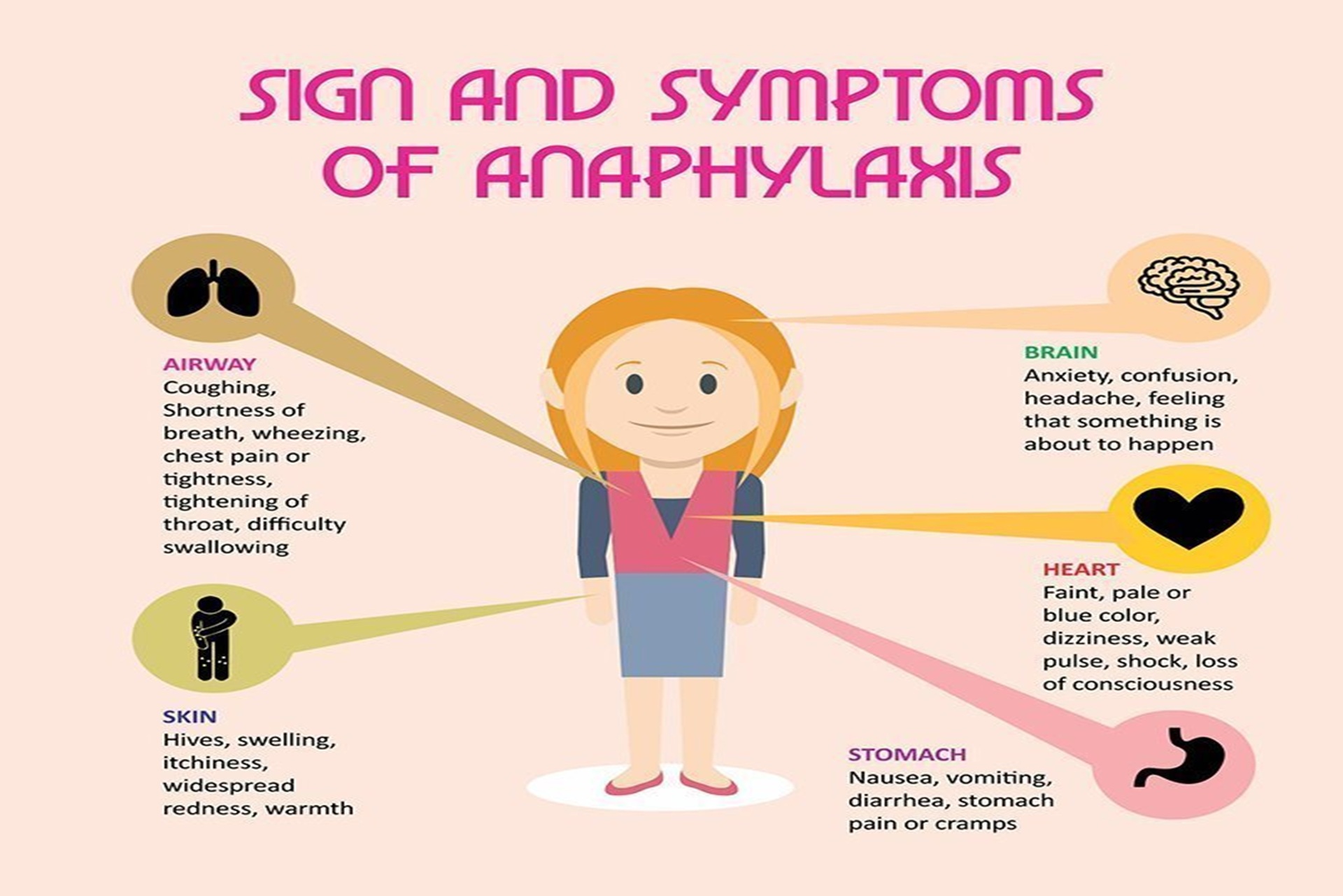
Overview:
Anaphylaxis is a severe, life-threatening allergic reaction that occurs rapidly after exposure to an allergen. It affects multiple organ systems, causing symptoms like difficulty breathing, swelling, and low blood pressure. Common triggers include insect stings, certain foods (e.g., peanuts, shellfish), medications, and latex. Anaphylaxis requires immediate medical attention to prevent serious complications or death.
Causes:
Anaphylaxis is triggered by the immune system’s overreaction to an allergen. When exposed, the body releases large amounts of histamine and other chemicals, leading to inflammation and narrowing of the airways. Common causes include food allergies, insect stings, medications, and exposure to latex.
Symptoms:
Symptoms of anaphylaxis can include swelling of the throat and lips, hives or rash, difficulty breathing, chest tightness, wheezing, dizziness, nausea, vomiting, and a drop in blood pressure. Severe reactions can lead to shock, loss of consciousness, and even death if not treated promptly.
Treatment:
The primary treatment for anaphylaxis is the administration of epinephrine (adrenaline) through an injection, which helps reverse symptoms by constricting blood vessels, opening airways, and stabilizing blood pressure. Antihistamines and corticosteroids may also be given to reduce inflammation. Immediate medical attention in an emergency setting is essential to monitor and manage the condition.
Precautions:
People with known allergies should carry an epinephrine auto-injector at all times. Avoiding known allergens and informing others (e.g., friends, schools, or workplaces) about potential triggers is crucial. Wearing a medical alert bracelet can help others identify the risk in case of an emergency.
Prevention:
Avoiding exposure to known allergens is the best way to prevent anaphylaxis. Individuals with severe allergies should work with their healthcare provider to develop an action plan and ensure proper management of any allergic reactions.
For expert care in managing anaphylaxis, visit The KDM Hospital in Lucknow, offering ambulance services, budget-friendly care, Ayushman card acceptance, and 24/7 doctor availability.
